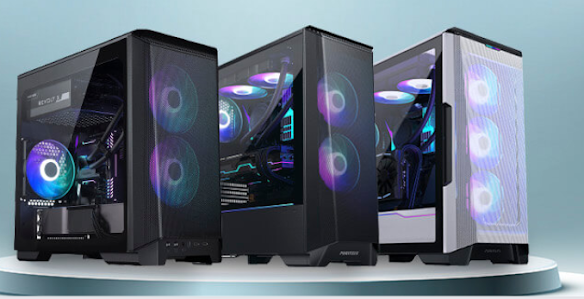All You Need To Know Before Buying Computer Power Supplies What is a Power Supply Unit (PSU)?
A power supply unit is a piece of internal IT gear. A power supply is a device that converts alternating high voltage current (AC) into direct current (DC) and regulates the DC output voltage to the precise tolerances required by modern computing components.
When it comes to choosing your next Best Computer Power Supply, keep one eye on the future because the power supply can set the bounds of your goals when it comes to potential PC upgrades.
Let's look at what you should know about power supplies while building your own computer.
1. Wattage
When it comes to power supply, we can't talk about them without addressing the wattage. The wattage requirements of all of your PC components must be met by your power supply. A PC with insufficient processing power may not function properly, if at all. As a result, wattage is the primary consideration when selecting a power supply.
2. The Rating System
You may have spotted
several computer power supplies with an 80 plus (Trademarked 80 Plus)
rating while looking for PSUs. This rating indicates how successfully a power
supply converts power from a wall outlet to the lower voltage needed by a
computer's components.
Power supply with this grade, on the other hand, are assured to squander no more than 20% of it. As a result, the name "80 plus" was coined.
3. Consider Rails
The unit gets
electricity from a rail, which is a printed circuit board pathway. The number
of "paths" that give power to the various PC components is determined
by rails.
All you have to do now is make sure that power-hungry components like the GPU and CPU are connected to the proper rails.
4. Pin Connectors
When purchasing a PC power supply, make certain that it includes all of the necessary connectors. It all depends on the GPU's and cooling systems' power consumption. You must also consider the connectors used by your motherboard.
5. Modularity
Modularity refers to the ability to remove or attach power connector cables to the power supply unit. Modular power sources are also more portable than traditional power supply. Modular power sources are also more portable than traditional power supply. If you can't afford a fully modular PSU but want to avoid a fully non-modular unit, a semi-modular unit is an option.
Choosing a Cost-effective Power Supply:
The wattage is unquestionably the most crucial factor, and the PSU must have the correct connectors to work with your PC, but that doesn't mean you shouldn't consider the other non-essential features. You may be tempted to save a few dollars by purchasing a less expensive power supply, but it is better to be safe than sorry because a malfunction can ruin crucial components of your system.
Many people ignore the necessity of selecting a suitable power supply when building a computer. This is usually due to the fact that it isn't particularly fascinating or doesn't bring clear benefits to the final product.
Choosing the correct power supply for your computer now will save you a lot of trouble later. Using the incorrect power supply might damage your components as well as limit their lifespan.
The Bottom Line:
The world of power supplies might be perplexing, but if you understand the basics, you can always choose the finest for your PC. You now know the fundamentals and what to avoid.
After you've purchased
your PSU, make sure to take good care of it, as it's one of the most common PC
components to fail. Fortunately, there are ways to get the most out of your
purchase by extending its lifespan.



Comments
Post a Comment